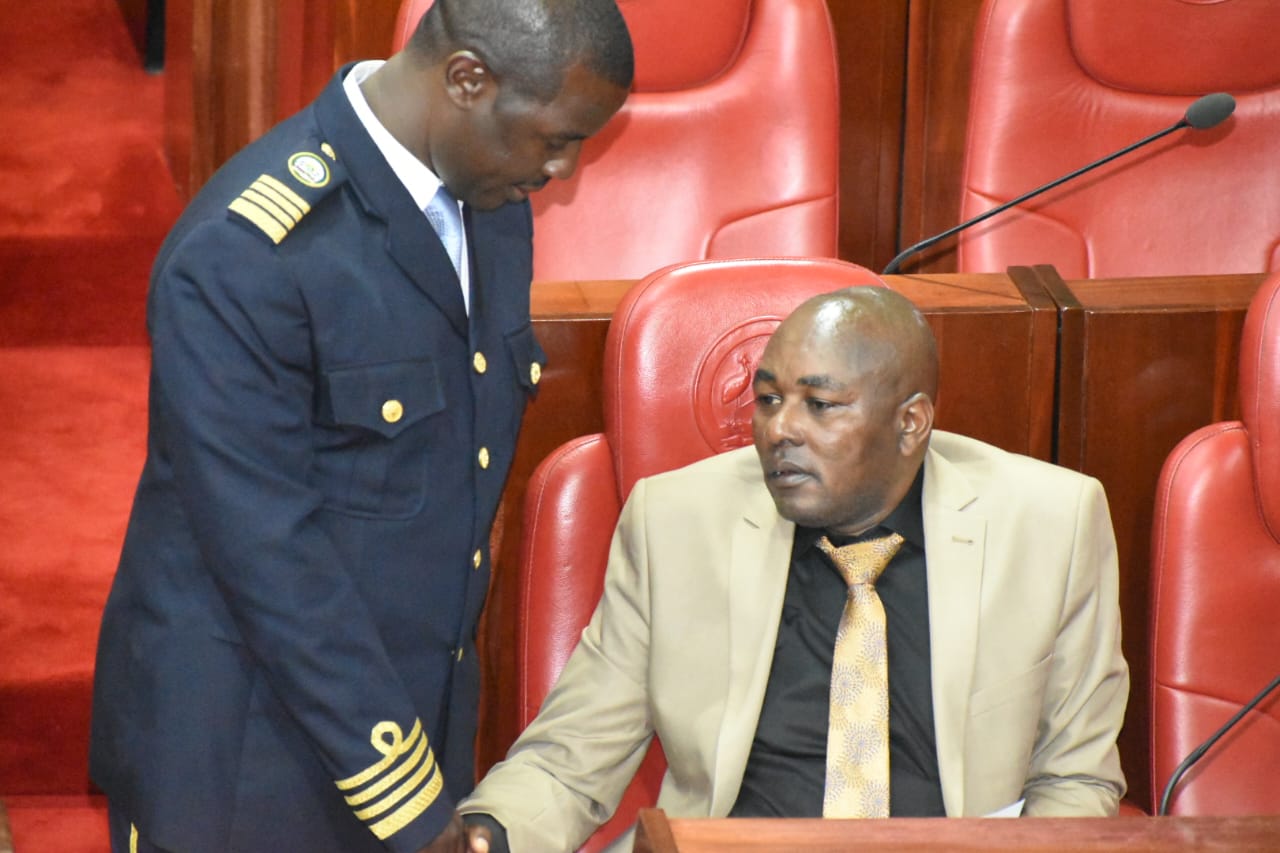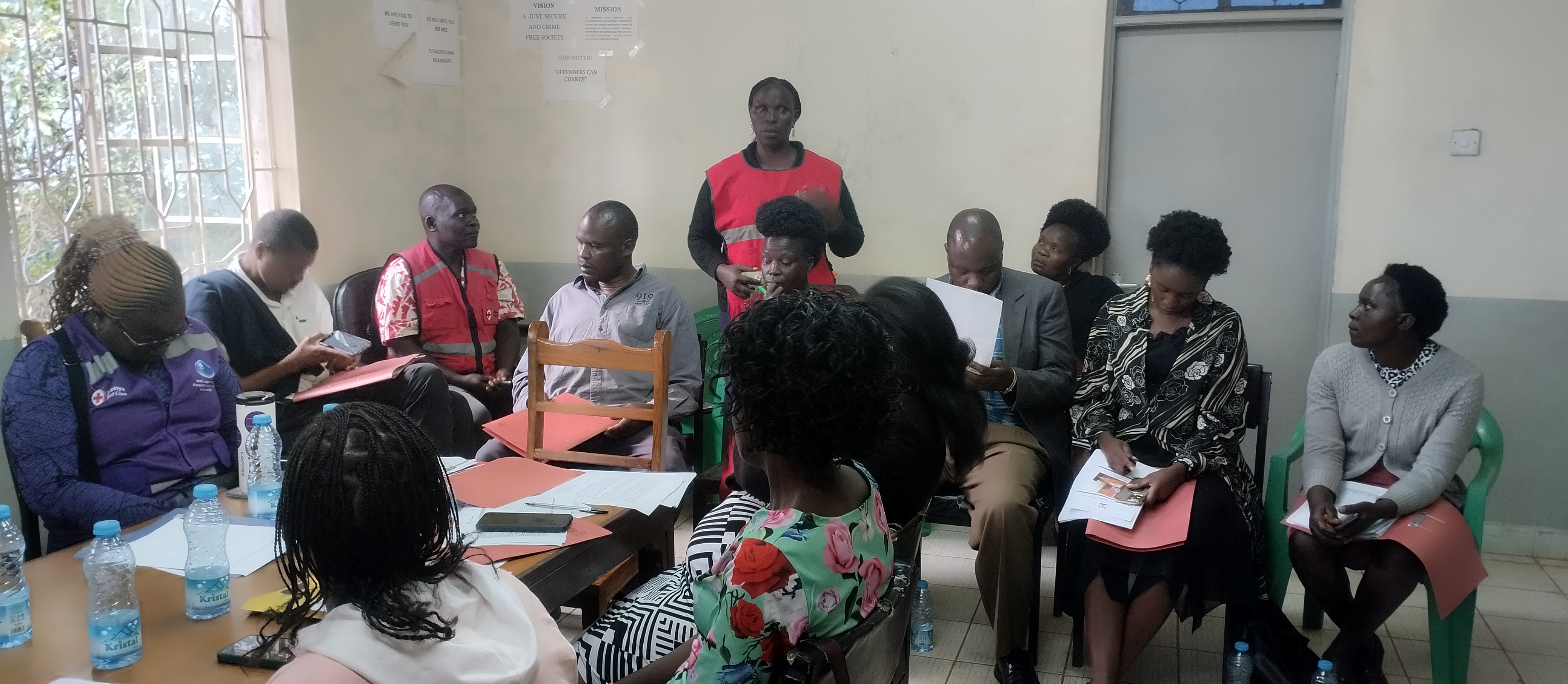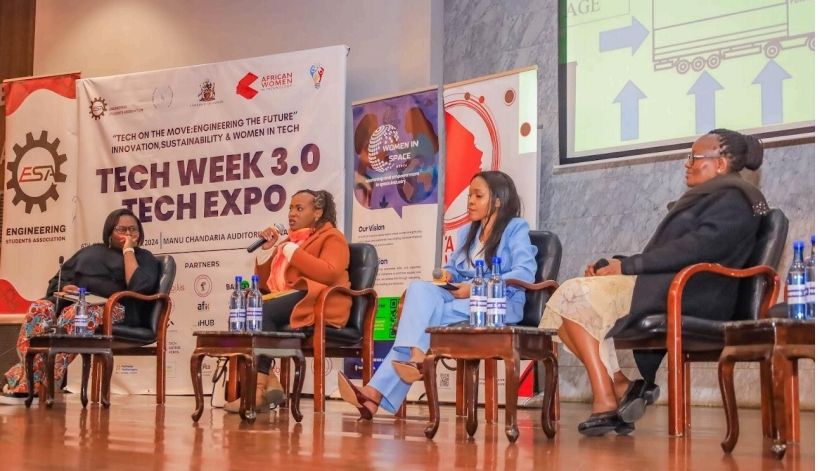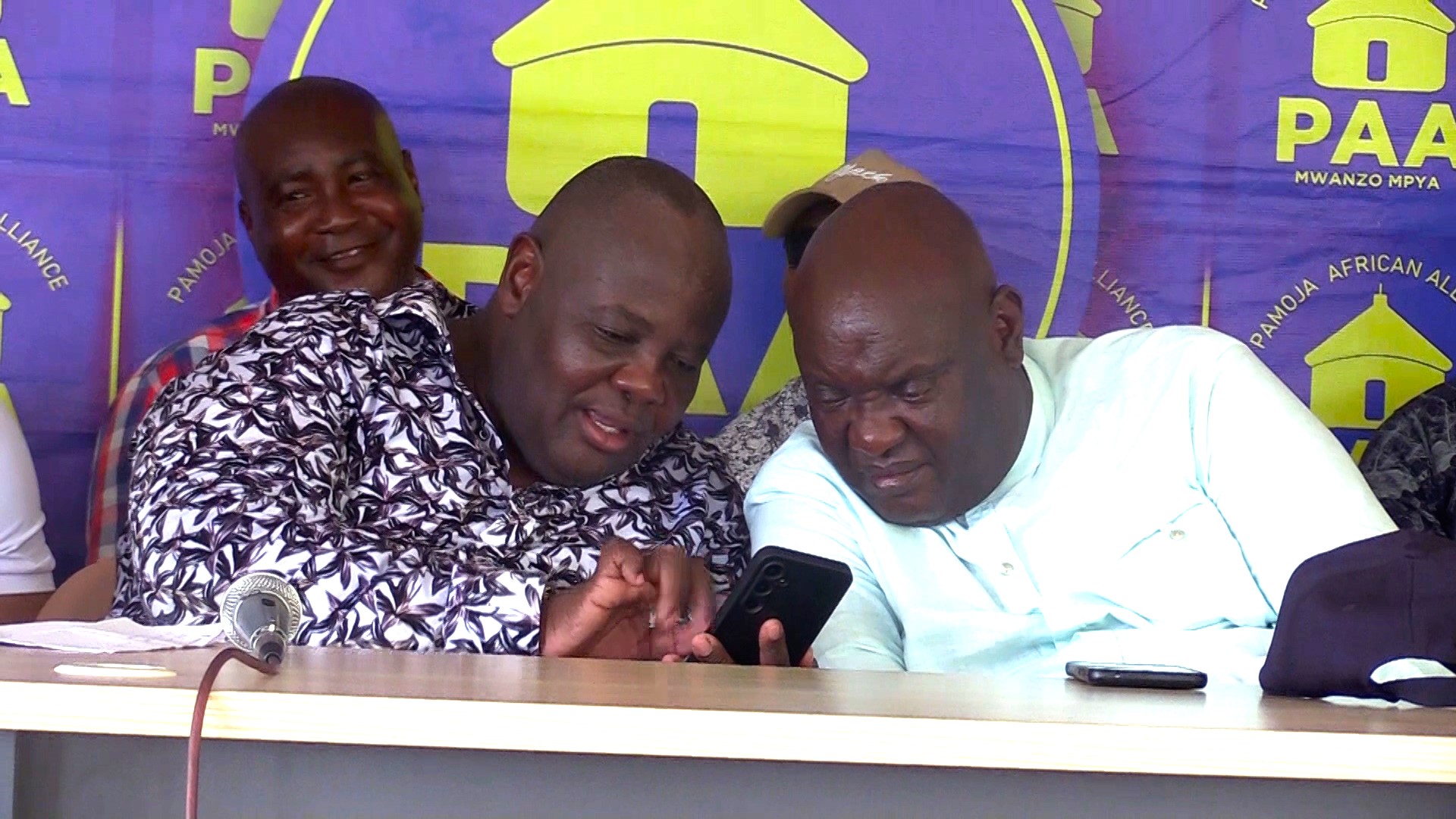How former employees won court cases against Hipora business solution owned by John Wanjohi-Check list

COURT REVIEWS
John Wanjohi, the founder of Hipora Business Solutions East Africa is a known corporate magnet whose company supply major institutions such as supermarkets with staff and security guards.
But the firm’s reputation came to question in 2016 after he lodged a court case against city multimillionaire and Kevian Limited, owned by tycoon Kimani Rugendo.
The case almost ruined Hipora’s business solution reputation as a firm that was supposed to guard against employee theft was entangled in a web of alleged organized theft and accusations of using the court process to arm-twist aggrieved clients by filing embarrassing suits.
In a letter dated November 9, 2016, addressed to Kevin, Hipora admits one of its employees was involved in theft and apologized for the same.

“We would like to first apologize for the theft incident that took place in your Thika Factory on October 4, 2016, and the involvement of our staff … in releasing products unprocedural,” says Hipora in its letter.
The claims and counterclaims around the theft syndicate finally ended in court on December 20, 2016, when Hipora moved to court seeking to liquidate Kevian over an Sh2.8 million debt little did he know that the hunter would become hunted.
The politician-turned-businessman Mr. Rugendo, in his affidavit, said that on January 7, 2017, thieves working in cahoots with security guards and “one of Hipora’s staff members”, broke into his warehouse and carted away goods worth Sh19.7 million.

In the letter to the police boss, Mr. Rugendo said a Hipora employee, Mr. Karobia, and a relative of Mr. Wanjohi was behind pre-arranged sales of raw materials stolen from the company’s premises in Thika.
Mr. Rugendo, in his letter to the OCS, Thika asked for the prosecution of Mr. Wanjohi and cited another alleged theft at Tuskys involving Hipora employees.
He referred to an incident in 2015 where Tuskys Supermarkets said it was losing more than Sh100 million every month to theft by employees.
Then, Tuskys directed Hipora to remove its entire staff from all its stores except for double checkers who ascertain deliveries by suppliers.
The Kevian owner accuses Mr. Wanjohi of being the syndicate leader charged with the role of selling and sharing the spoils among Hipora employees, Straight Security, and Kevin employees who were involved in facilitating the alleged theft.

Based on this alleged theft, Kevian’s lawyers responded to Hipora’s May 2017 demand letter, disputing the payment demand of Sh2.8 million and issuing their counterclaim of Sh19.7 million.
Over the years, Hipora’s long client list has included Nakumatt Supermarkets, Bidco, Choppies, East Matt, Easy E Matt, and Maathai Supermarket among others.
Another case against James Ontori Orwochi v Hipora Business Solution (Ea) Limited.
The Claimant’s case is that on 2/7/2012, he was employed by the Respondent as a Double Checker as per the letter of appointment- Appendix 1A.
The salary attached to this post was Kshs.23,000/= subject to all statutory deductions as per the Kenyan Tax Laws. He was also entitled to breakfast and lunch which attracted a deduction of Kshs.1,500/= from his monthly pay.
After evaluation of the case, HON. LADY JUSTICE HELLEN WASILWA, HIPORA was obliged to pay the claimant
16 days leave = 16/21 x 23,000 = 17,524/=
Public Holidays = 15,925/=
Lunch deductions = 4,500/=
Issuance of Certificate of Service
Total = Kshs. 37,952/=
CASE 3
Meshack v Hipora Business Solutions (EA) Limited (Judgement delivered 06 Jul 2022.
The Claimant told the Court that his employment was unfairly and unlawfully terminated by the Respondent and sought the following reliefs:
He demanded the following as part of compensation.
(a)A declaration that the Claimant’s dismissal from employment was unlawful(b)A declaration that the Claimant is entitled to payment for his terminal dues and compensatory damages as pleaded. (c)An order for Respondent to pay the Claimant for his terminal dues as tabulated below:(i)One month’s salary in lieu of notice Kshs.20,000.00ii.Uniform (a refund for money deducted) Kshs.2,000.00iii.Severance pays x 20,000 Kshs.8,33.30iv.Off duty worked not paid 8 November 2014, 15 September 41 days 41 Kshs.31,538.50v.12 months? salary as compensation for unfair dismissal at Kshs.20,000/- Kshs.240,000.00vi.Overtime (working 11 hours a day) 3 hours Overtime at @ 3 hours daily Hourly pay ) = 96.158 No. of hours worked =3 x 30 days x 10 months = 900 hours Overtime = 900 x 96.15 Kshs.86,535.00vii.Accrued leave 21 x x =17.5 x 769 Kshs.13,461.50vii.Holidays worked but not paid 8/11/2014 -15/9/2015 = 8 days( x 8) Kshs.6,153.80vii.House Allowance 20,000 x 10 Kshs.30,000.00vii.

Withheld September 2015 earnings being 17,474? 13,000 Kshs.4, 747d.Costs of this suit plus interest thereon.
“Having found that the Claimant’s employment was unfair, he is entitled to costs of the suit which I award him, together with interest on the decretal sum at Court’s rates from the date of judgment to the date of payment in full, ‘Court documents in possession reads.
CASE 4
Juliet Oyando v Hipora Business Solutions (EA) Limited
The claimant was employed by the respondent as a Human Resource Intern in the year 2012 earning a monthly salary of Kshs 15,000. On 16th January 2014, the claimant was employed under a one-year contract in the position of Human Resource Assistant.
The claimant worked continuously until the contract of employment was terminated on 11th March 2014.
In terms of the contract, the claimant earned Kshs 25,000 gross monthly salary. The employment was on a 12-month fixed-term contract effective 16th January 2014 and was due to end on 15th February 2014.
The contract could be terminated by either party giving one month’s notice. The claimant was to work from Monday to Saturday for eight (8) hours exclusive of lunch break with one day off for every six days worked. The claimant was also entitled to 21 days of annual leave per year. The respondent reserved the right to dismiss the employee without notice in terms of section 44 of the Employment Act, 2007.
Upon termination, the claimant was to be paid salary for days worked in March, one month in lieu of notice, and for accrued leave. She was advised to collect a cheque on 16th March 2014.
The claimant sought ;
one month’s salary in lieu of notice in the sum of Kshs 25,000;
payment for the unexpired term of the contract being nine (9) months in the sum of Kshs 225,000;
maximum compensation for unlawful termination in the sum of Kshs 300,000;
Provision of certificate of service.
The respondent filed a Memorandum of response dated 29th September 2014 on 30th September 2014 in which it admits that the claimant was employed on 16th January 2014 as a Human Resource Assistant on a one-year contract.
That on 11th March 2014, the claimant’s employment was terminated for gross misconduct in terms of Section 44 (4)(a) and (c ) of the Employment Act, 2007.
In the final analysis,
MATHEWS N. NDUMA PRINCIPAL JUDGE awarded to the claimant as against the Respondent the following.
(i) Kshs 25,000 in lieu of notice (1-month salary);
(ii) Kshs 225,000 compensation (9 months? salary);
The total award is Kshs 250,000.
CASE 5
Joshua Toroni Ntabo v Hipora Business Solutions (Ea) Limited
On 30th October 2009, the claimant was employed by the respondent as a loss control officer working during public holidays and had a uniform deduction of Ksh.3, 000 which he had to surrender at the end of his employment.
The claimant was deducted ksh.2, 000 for PLO T-shirts and a monthly deduction of Ksh.1, 500 for lunch fees for 2 years.
The case was dismissed by Judge M. MBARU
CASE 6
Susan Clare Muthoni v Hipora Business Solutions (EA) Limited
Susan Clare Muthoni, the Claimant in this case was employed by the Respondent in the position of Front End Checker.
Following the termination of her employment on 31st March 2012, the Claimant filed this claim seeking compensation for unlawful termination plus terminal dues.
The Respondent filed a Memorandum of Reply on 28th July 2012.
The Claimant was employed by the Respondent at a monthly salary of Kshs. 27,000 effective 14th September 2011. She was confirmed in her appointment following four (4) a months probationary period.
4. The Claimant worked in several branches, the last one being Nakumatt Lifestyle Branch. On 31st March 2012, her employment was terminated on allegations of poor performance. She contends that the termination was unlawful and unfair and therefore claims the following:
a) 12 months? salary in compensation;
b) One month’s salary in lieu of notice;
c) Allowances and benefits;
d) General and exemplary damages
e) Costs plus interest
The claims for allowances, benefits and general and exemplary damages were not proved and are dismissed but the court ordered Hipora to pay for 2 months. salary in compensation?…?Kshs. 54,000 and 1 month’s salary in lieu of 27,000
Total 81,000
CASE 7
Joseph Sani Orina v Hiprora Business Solution (EA) Limited
The claimant pleaded that he was between 23rd June 2009 and 16th June 2013 employed by the respondent first as a Double Checker and then as a Reliever.
He was later on promoted to Systems controller and at the time of termination working as a Junior Regional Manager.
At the time of termination of his contract, he was earning a gross salary of Kshs 60,000/=.
In April 2012 while in Mombasa he was asked to send his original certificates and transcripts for purposes of registering for a professional training college. The claimant obliged and sent the certificate as requested.

According to him, it was agreed that the respondent would upon registration return the certificates to the claimant. However, the respondent did not return the certificates and transcripts as agreed but informed the claimant that was either misplaced or lost.
In the case, Hipora lost the case and was ordered to compensate as follows.
In conclusion, the court will enter judgment in favor of the claimant as follows:
Kshs
a) One month’s pay in lieu of leave 60,000
b) Relocation allowance (as per the letter of promotion) 10,000
c) Travelling expenses to Uganda 98,000
168,000
There are several cases that we will analyze next week on the purpose of public interest








